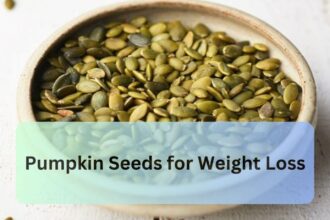Introduction:
Weight management is a journey that evolves with age, and for individuals over 50, the strategies for achieving and maintaining a healthy weight can differ significantly from those in earlier stages of life. A recent trend gaining attention suggests that skipping breakfast might be a viable approach for weight loss after 50. In this article, we explore the insights provided by experts on this topic, delving into the science, potential benefits, and considerations of avoiding breakfast in the pursuit of weight loss after reaching the half-century mark.
The Breakfast Dilemma:
Breakfast has long been hailed as the most important meal of the day, associated with kickstarting metabolism and providing energy for daily activities. However, recent discussions in the health and nutrition community have sparked a reevaluation of this conventional wisdom, particularly for individuals over the age of 50.
Expert Opinions:
To better understand the nuances of this topic, we consulted with Dr. Jessica Turner, a certified nutritionist specializing in senior health. According to Dr. Turner, “Weight management after 50 is a complex process that involves a combination of factors, including metabolism changes, hormonal fluctuations, and lifestyle adjustments. While breakfast has traditionally been considered essential, recent research suggests that skipping it may have specific benefits for some individuals in this age group.”
Metabolism and Hormonal Changes:
One of the key factors influencing the breakfast dilemma after 50 is the natural decline in metabolism and hormonal changes that accompany aging. Metabolism, the body’s process of converting food into energy, tends to slow down with age. Additionally, hormonal shifts, such as changes in insulin sensitivity and cortisol levels, can impact how the body stores and burns fat.
Intermittent Fasting and Time-Restricted Eating:
The concept of intermittent fasting and time-restricted eating has gained popularity in recent years. These approaches involve periods of eating followed by periods of fasting. Dr. Turner explains, “Intermittent fasting can be an effective strategy for weight management after 50. Skipping breakfast and condensing eating into a shorter window may help the body tap into stored fat for energy and improve metabolic efficiency.”
Benefits of Avoiding Breakfast:
- Improved Insulin Sensitivity:
- Research suggests that intermittent fasting, including skipping breakfast, may enhance insulin sensitivity. Improved insulin sensitivity can help regulate blood sugar levels, reducing the risk of insulin resistance and type 2 diabetes, common concerns for individuals over 50.
- Enhanced Fat Utilization:
- By extending the fasting period, the body may shift from using glucose for energy to utilizing stored fat. This process, known as ketosis, can contribute to fat loss and improved body composition.
- Simplified Caloric Restriction:
- Skipping breakfast can simplify the process of caloric restriction, a fundamental aspect of weight loss. With a shorter eating window, individuals may find it easier to control overall calorie intake, which is crucial for effective weight management.
Considerations and Individual Variability:
While there may be potential benefits to avoiding breakfast for weight loss after 50, Dr. Turner emphasizes the importance of individual variability. “Not everyone will respond the same way to intermittent fasting or skipping breakfast. It’s crucial to consider factors such as individual health conditions, medication use, and personal preferences. Consulting with a healthcare professional or nutritionist is advisable before making significant changes to one’s eating habits, especially in the context of weight management after 50.”
Balancing Nutritional Needs:
Another consideration when contemplating skipping breakfast is ensuring that nutritional needs are met during the eating window. Dr. Turner highlights the importance of nutrient-dense meals when breaking the fast. “When individuals do eat, it’s essential to focus on nutrient-dense foods to provide the body with the vitamins, minerals, and essential nutrients it needs, especially in later life when nutritional requirements may change.”
Physical Activity and Lifestyle:
The impact of skipping breakfast on physical activity levels and overall lifestyle is a critical factor to consider. For some individuals, engaging in exercise during the fasting period may not be optimal, while others may find it beneficial. Dr. Turner recommends aligning eating patterns with lifestyle and personal preferences. “If someone is an early morning exerciser, skipping breakfast may not be the best approach. On the other hand, individuals who prefer later workouts might find it more suitable.”
Potential Drawbacks:
While there are potential benefits to skipping breakfast for weight loss after 50, it’s essential to acknowledge potential drawbacks. Dr. Turner highlights that skipping meals, including breakfast, may lead to nutrient deficiencies if not done mindfully. Additionally, it can result in increased hunger and overeating later in the day, negating the potential benefits of fasting.
Practical Tips for Implementing Breakfast Skipping:
For those considering experimenting with skipping breakfast for weight loss after 50, Dr. Turner provides practical tips:
- Start Gradually:
- Begin by gradually extending the fasting period to allow the body to adjust. This can involve delaying breakfast by 30 minutes to an hour and gradually increasing the fasting window.
- Stay Hydrated:
- Drink plenty of water during the fasting period to stay hydrated. Herbal teas and black coffee are also permissible, but it’s essential to avoid excessive caffeine intake.
- Prioritize Nutrient-Dense Foods:
- When breaking the fast, focus on nutrient-dense foods such as lean proteins, whole grains, fruits, and vegetables to ensure essential nutrients are consumed.
- Listen to Your Body:
- Pay attention to hunger cues and energy levels. If skipping breakfast leaves you feeling fatigued or overly hungry, reconsider the approach.
- Consult with Professionals:
- Before making significant changes to your eating habits, consult with a healthcare professional or a registered dietitian to ensure that the chosen approach aligns with your individual health needs.
Conclusion:
Weight loss strategies evolve with age, and for individuals over 50, exploring unconventional approaches like skipping breakfast may offer new possibilities. While the potential benefits of intermittent fasting and time-restricted eating are supported by research, it’s crucial to approach such changes with awareness and consideration of individual variability. As the breakfast dilemma continues to be debated among experts, the key lies in finding an approach that aligns with individual preferences, lifestyle, and health needs. Before embarking on any significant dietary changes, seeking guidance from healthcare professionals can provide personalized insights, ensuring a balanced and sustainable approach to weight management after 50.






